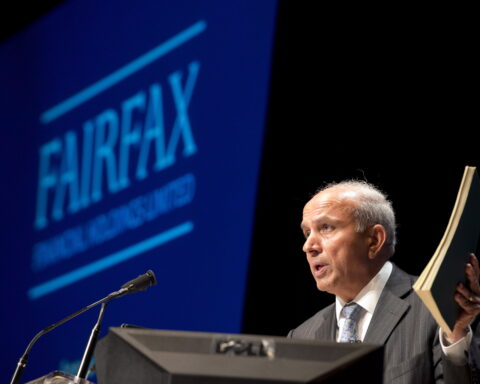Two major European financial institutions are setting higher expectations for climate performance, with German asset manager Union Investment dropping all its holdings in ExxonMobil and Oslo-based pension manager Norges Bank Investment Management establishing tough, new sustainability reporting requirements for the thousands of companies it backs.
Union Investment, with €500 billion in holdings, dumped its Exxon shares after reviewing the most carbon-intensive investments in its portfolio, The Financial Times reports. It also divested a smaller oil and gas exploration firm called EOG Resources, formerly known as Enron Oil & Gas.
“At its peak last year, Union held about €500 million of Exxon shares and a similar amount in EOG stock across its actively managed funds,” The Times writes. “Union’s move highlights a divergence between fund managers in Europe and U.S. asset managers, as a number of the latter reassess or pull back from climate-related initiatives in response to U.S. political pressure.”
Union made its move after “intensive, and at times difficult, dialogues,” at the end of which it “could not identify a sufficient commitment to the required climate targets” from Exxon and EOG, said Union’s head of sustainability, Henrik Pontzen. “As part of our climate strategy, we require all companies to commit to long-term, comprehensive climate targets,” he said. “If a company fails to even set such targets, we see no basis to assume it will achieve them.”
While Exxon has published net-zero goals for its operational Scope 1 and 2 emissions, Union said the company made no commitments for downstream Scope 3 emissions that account for about 90% of its climate pollution. In 2021, under pressure from investors, Exxon disclosed that its Scope 3 emissions had hit 730 million tonnes in 2019.
“Asset managers have come under more pressure over climate action” since Donald Trump returned to the White House, The Times says. “But Union Investment is relatively insulated from these political impediments.” The company has “no American clients, no subsidiaries there, and is not dependent on U.S. government contracts,” Pontzen said, and “climate change remains – regardless of who is in political power – a central factor in our investment strategy.”
In Norway, meanwhile, Norges Bank Investment Management, the €1.5-trillion pension manager attached to the world’s biggest sovereign wealth fund, announced tougher sustainability reporting standards for the more than 9,000 companies in which it holds shares. Through its 2025 climate action plan, the fund “just raised its sustainability expectations for every company it invests in globally,” writes sustainable business development advisor Adam Bergsveen, at just the moment when the European Union is diluting its reporting standards.
Bergsveen says Norges’s new requirements – including clear board-level responsibility for sustainability, science-based targets for climate and nature, due diligence on human rights, and transparent reporting aligned with key sustainable finance standards – will make the weaker EU standard irrelevant.
“When they set expectations, companies listen. And the market moves forward,” Bergsveen writes on LinkedIn. “Investor expectations take precedence over regulatory delays. And companies that want capital, clients, or credibility need to keep up.”
This article was first published by The Energy Mix. It has been edited to conform with Corporate Knights style. Read the original story here.







